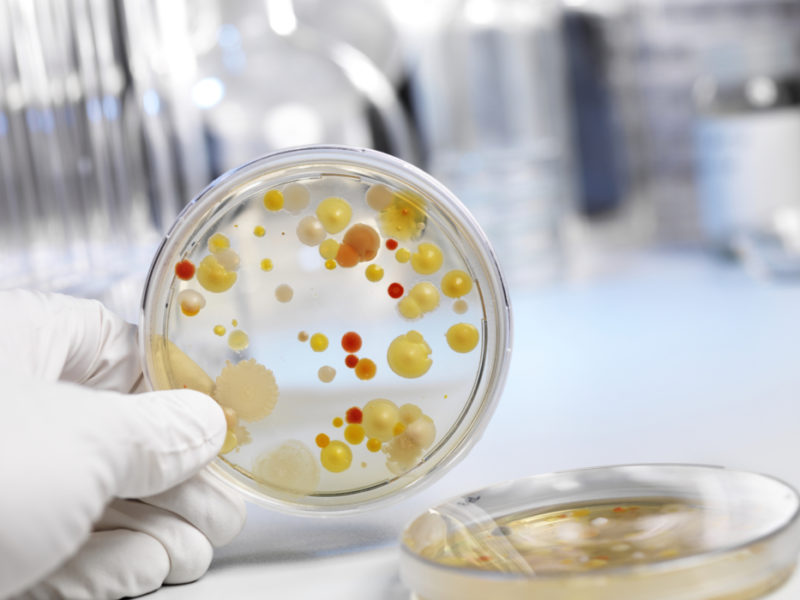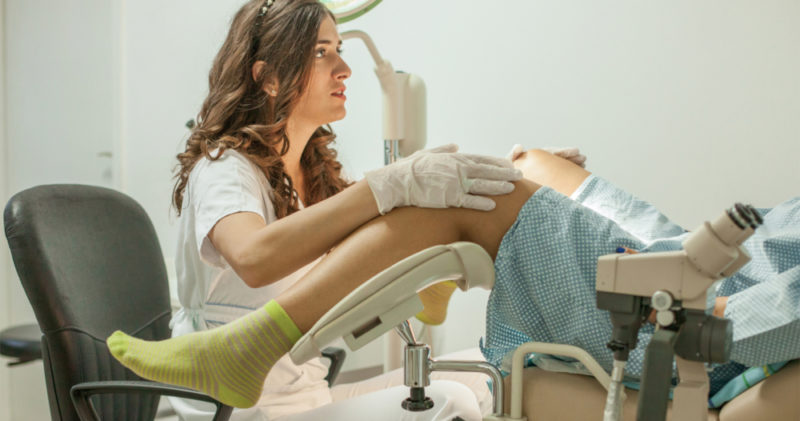The pungent odor from the vagina is often the first symptom of a dangerous disease. The problem needs to be solved, and not masked with fragrant means for intimate hygiene, so it is important to understand what other signs may indicate pathology.
Material Content:
Causes of unpleasant odor from the vagina
Normally, the vagina has a subtle specific smell. It is individual for each woman and may have a sour or sweetish tint, which is due to the characteristics of the hormonal background. Regardless of the specifics of the smell, normally it is almost not felt and completely disappears after intimate hygiene. A serious cause for concern is the sudden change in flavor in an unpleasant direction, increasing its intensity. Nevertheless, this does not always indicate pathology and may be a temporary phenomenon.
The reasons for the change in the intimate smell of a woman:
- menstruation;
- hormonal changes, for example, during pregnancy;
- inflammatory and infectious diseases of the genital organs;
- non-observance of personal hygiene;
- wearing synthetic underwear.
One of the unobvious reasons is the constant wearing of daily pads. They prevent the flow of oxygen to the genitals, as a result, an environment is created that is favorable for the development of pathogenic microorganisms. The result is thrush, bacterial vaginosis, or colpitis associated with the propagation of opportunistic microflora, which is accompanied by an unpleasant odor. If we talk about a sharp and unpleasant shade, the reason may be hidden in the activity of bacteria that always inhabit the female body, but for some reason their number suddenly increased. Most often this is due to an increase in the gardnerella or candida population.
A harsh spirit can accompany hormonal disorders. Normally, an increase in one's own aroma can be noticed on the eve of menstruation, but after critical days this passes.If a woman found such phenomena in the middle of a cycle - this is an occasion to check the level of hormones.
What diseases indicates
An unpleasant odor from the vagina is most often caused by a violation in the composition of the microflora. This is due to a shift in balance towards the "bad" bacteria, which are always present in the female body, but in small quantities.
The most common diseases accompanied by a change in intimate aroma:
- gardnerellosis;
- thrush (candidiasis);
- colpitis;
- bacterial vaginosis.
The term "bacterial vaginosis" describes various disorders of the vaginal microflora or dysbiosis. Gardnerellosis is one of the most common forms of vaginosis, due to an increase in the number of bacteria gardnerella vaginalis. A change in the composition of microflora can be due to various reasons, including douching too much or changing a sexual partner.
Typical symptoms:
- a large number of discharge;
- change the color of the selection to yellow;
- the smell of onions from the vagina;
- discomfort during intercourse.
If dysbacteriosis is provoked by coccal microorganisms, including the causative agent of gonorrhea, the discharge becomes foamy and acquires a greenish tint, while the smell of fish from the vagina appears. However, doctors do not attach fishy aroma precisely to sexually transmitted diseases, since a similar shade is generally characteristic of any disturbances in the microflora. An acidic smell is present with a fungal infection - candidiasis or thrush. This is a very common disease, accompanied by itching, burning in the front of the vagina, profuse lumpy (curd) discharge of white color.
Colpitis (vaginitis) is an inflammation of the vaginal mucosa. Pathology can be caused by conditionally pathogenic microflora, which is normally present in the body, and pathogenic bacteria - chlamydia, trichomonads, gonococcus. The disease is accompanied by profuse foamy or watery discharge of yellow or green color, itching, burning sensation during urination.
Colpitis is dangerous by the spread of the inflammatory process to the cervical canal, therefore, it must be timely detected and cured.
In general, an unpleasant odor can appear against the background of any infectious and inflammatory process, including sexually transmitted diseases - chlamydia, gonorrhea, and trichomoniasis. If discomfort occurs, it is necessary to undergo an examination by a gynecologist.
Diagnostic measures
If there is an unpleasant odor from the vagina, only a doctor can establish the reasons. For this, it is necessary to make bacterial culture of the vaginal microflora to determine changes in its composition. Since the study is carried out for quite a long time (about 7 days), an ordinary smear is additionally taken. Microscopic examination of the material allows to identify candidiasis, colpitis and gardnerellosis, but to obtain a detailed picture, it is necessary to wait for the results of backseeding.
The doctor must examine the woman, perform palpation of the ovaries and colposcopy of the cervix. These diagnostic measures are necessary to identify concomitant pathologies and diseases that occur in a latent form.
Based on the bacterial culture of the vaginal microflora and antibiograms, which are always carried out in combination, the doctor makes a diagnosis and prescribes a therapy regimen.
How to get rid of the smell
Bad smelling secretions can be defeated in only one way - to eliminate the cause of their occurrence. No other methods will give the expected effect, but only temporarily hide the symptoms.
Since diseases accompanied by an unpleasant odor from the genitals can pose a potential danger to the health of a woman and her partner, it is necessary not to self-medicate, but to trust the doctor in the matter of therapy.
The basic principles of drug therapy
Drug treatment is aimed at eliminating the underlying ailment, and not the smell from the vagina, which is only a symptom.
The principles of treatment:
- elimination of pathogenic bacteria with antibiotics;
- increase immunity with the help of special drugs;
- restoration of normal microflora using probiotics.
With mixed bacterial vaginosis, combined preparations are prescribed in suppositories - Terzhinan, Pollizhinaks, Meratin Combi, etc. They contain an antifungal drug, an antibiotic, and an anti-inflammatory agent, due to which they have a complex effect.
In garrenerellosis, first-line drugs are drugs based on metronidazole - tablets and suppositories.
For the treatment of candidiasis, antimycotics are used - Pimafucin, Clotrimazole, Livarol, etc. The basis in this case is vaginal suppositories, but in addition, the doctor may prescribe antifungal tablets.
Sexually transmitted diseases are treated with antibiotics that are active against bacteria detected in the smear.
To strengthen the immune system, various drugs are prescribed - injections of echinacea, Lavomax, Amiksin.
Folk remedies
Traditional medicine can be used in addition to drug therapy, but only after approval by a doctor. To reduce irritation of the vaginal mucosa, douching with a decoction of chamomile or sage is used, with thrush, washing with a weak soda solution is popular. It is important to remember that such methods of treatment affect not only pathogenic, but also healthy microflora, therefore, they can harm women's health.
Prevention
The most important and effective prevention method that women often neglect is to visit a doctor regularly. Any girl who has a sex life is recommended to undergo an examination with a gynecologist twice a year. This will allow you to timely identify the beginning of any pathological process and to cure it qualitatively.
As a prevention, doctors recommend:
- monitor nutrition;
- adhere to hygiene, especially during menstruation;
- change pads or tampons every 3-4 hours;
- wear underwear made from natural fabrics;
- refuse douching and daily pads;
- Avoid casual sex.
Daily hygiene products are recommended to be used only as necessary - in the last days of menstruation or during the period of ovulation, when there is more natural discharge. But douching is not necessary for a healthy woman at all, because it only violates the natural microflora.
To maintain the necessary care, it is quite simple to wash twice a day, and once you can do without soap, so as not to overdry sensitive skin.
It is important to remember: you can not get rid of the smell from the vagina with a gel for intimate hygiene or baby soap, if the problem is associated with a violation of microflora. In this case, it is necessary to restore the balance of beneficial bacteria, otherwise the problem will become pathological.



















